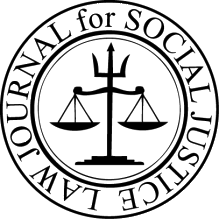By Shandiin Herrera
Health and safety are foundational concepts necessary to ensure a thriving community. In Indian Country, protecting and supporting individual tribal members are top priorities for tribal leaders.
This commitment to wellness is further reflected in the nation-to-nation relationship between sovereign tribal nations and the United States government. For example, the Indian Health Service (IHS), an agency within the federal Department of Health and Human Resources, is responsible for providing federal health services to American Indians and Alaska Natives.

In Arizona, tribal members access health care using the Arizona Health Care Cost Containment System (AHCCCS).[1] Services are delivered through IHS facilities, Tribally-Operated 638 Health Programs, Urban Indian Health Programs (ITUs), and other AHCCCS-registered providers. AHCCCS is a state agency responsible for administering a federal healthcare program according to federal requirements.
Under Arizona Revised Statutes, section 41-2051, “Each state agency shall . . . [d]evelop and implement tribal consultation policies to guide the agency’s work and interaction with the [22] tribal nations [in Arizona].” AHCCCS has a mission to provide comprehensive, quality care to those in need. AHCCCS and tribal nations in Arizona share the common goal of decreasing health disparities and maximizing access to critical health services. Consequently, AHCCCS plays a unique role in tribal relations in Arizona.
The American Indian Health Program (AIHP) is a fee-for-service program within AHCCCS that allows tribal members to receive health care, either directly through the program itself or from AHCCCS-approved providers. However, there is little state oversight of AHCCCS-approved providers, resulting in vulnerabilities in the AIHP.
The AHCCCS Office of Inspector General (OIG) and the Arizona Attorney General’s office became aware of potential fraudulent billing practices in AIHP in 2023. Investigations have revealed that AHCCCS-approved providers and operators have been recruiting vulnerable tribal members to enter facilities as in-patients or outpatients and then bill AHCCCS for treatment that was only partially or never provided. Scammers typically targeted tribal members experiencing homelessness and addiction who lived on tribal lands, border towns, and in Phoenix.
So-called providers rented Airbnb properties and hotels to pose as sober living homes and detox centers. Through these fraudulent treatment centers, they were able to generate a fake ghost-billing loophole to get paid more government money. Put simply, these scammers exploited vulnerable Native people to turn a substantial profit. Over the past few years, AHCCCS payments for outpatient services increased from $53 million in fiscal year 2019 to $668 million in fiscal year 2022.
As tribal community members began to disappear to fraudulent treatment centers, their families notified tribal authorities, and tribal leadership began working diligently to locate them. It is estimated that at least 7,000 Native patients have been exploited. In May 2023, Navajo Nation Attorney General Ethel Branch announced the launch of Operation Rainbow Bridge, an initiative to help Navajos exploited in AHCCCS billing scams. As part of the ongoing operation, Navajo Nation police officers and local partners provide assistance by locating victims and making arrangements for them to travel home to the Navajo Nation or be admitted to legitimate rehabilitation centers.

Martin Harvier, president of the Salt River Pima-Maricopa Indian Community (SRPMIC), launched a community support coalition of tribal health, public safety, and community development departments to find tribal members and help them return home safely. Harvier and other tribal leaders also expressed concern for Missing and Murdered Indigenous Women (MMIW), a national concern exacerbated by these circumstances.
The complexity of providing services amid overlapping federal, state, and tribal interests requires heightened oversight, protective regulations, and, at the very least, proper management. It is unfortunate and disrespectful that, despite the tribal consultation requirement in A.R.S. § 41-2051, tribal communities continue to suffer the consequences of poorly managed state agencies. And yet again, tribes only receive apologies and response-driven efforts.
Arizona Attorney General Kris Mayes said in a press conference, “I believe the state of Arizona owes our tribal nations an apology.” However, apologies will not bring back the lives lost in state-approved fraudulent treatment centers, and apologies cannot ensure a tragedy like this will not occur again.
It is not unreasonable to expect state agencies to properly implement federal programs and guarantee the same—if not more—oversight of tribal-serving programs as similar non-tribal programs. Whether that means implementing strict requirements and standards to be an AIHP provider, frequently monitoring AIHP, or creating a secure claim process, AHCCCS has ample room to improve.
Tribal leaders will continue to work together to protect their communities against this kind of mismanagement and exploitation. Together, they are reminding this state that Native people are not for sale.
[1] AHCCCS, pronounced “access,” is Arizona’s state-level expansion of the federal Medicaid program, which provides health care coverage to people who meet specific income and other requirements.
Shandiin Herrera is 2L at the Sandra Day O’Connor College of Law at Arizona State University. She serves as president of the Native American Law Student Association. Shandiin is from Monument Valley, Utah, and is a proud member of the Navajo Nation. She received her bachelor’s degree in public policy from Duke University. Before attending law school, Shandiin co-founded Yee Ha’ólníi Doo d.b.a. Navajo & Hopi Families COVID-19 Relief Fund. Shandiin is passionate about advocacy and protecting the inherent rights of Native Nations. Outside of law school, Shandiin enjoys spending time with family and friends, being active at the gym or on a trial, and cooking new recipes.
